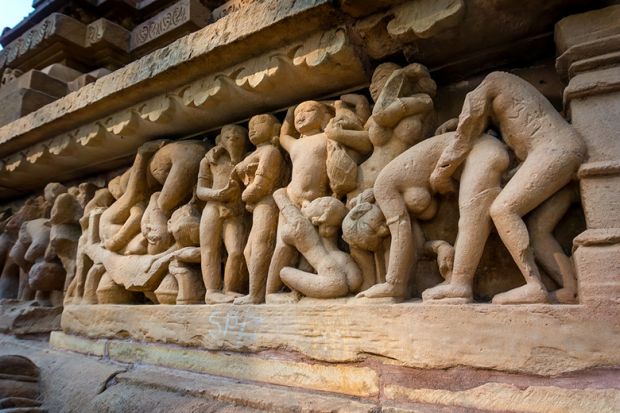A few pages into Secret Body, the reader is met with a disclaimer, “If you seek an established, respectable, fully rational, fully defensible program for the study of religion, then go elsewhere.” Instead, Rice University professor Jeffrey Kripal presents us with a compilation of theories, cultural references and anecdotes making up an impassioned thesis about the future of religious studies and “what human beings may become”.
Kripal, who describes his worldview as “a kind of liberal, rational, agnostic mysticism”, jumps excitedly from one topic to another. He starts by reflecting on his 2008 essay “On the fiction of a straight Jesus”, taking the reader through his formative experiences with the Catholic Church, his psychoanalytical awakening and subsequent study of Hindu mysticism and tantric literature. In what is one of the book’s most engaging sections, Kripal entwines his own story with that of his work – the repressed “heterophobic” structures of Christianity.
Recalling his time in a Catholic seminary, he suggests that while a loving, virtually romantic relationship with Jesus is encouraged in monastic environments, any notion of carnal desire remains taboo. So although homoerotic subtexts are present, if unacknowledged, in Church traditions, consensual sexual relationships between men and women are never celebrated in the way we find in Hindu narratives. Kripal implores scholars of religion not to be afraid of sexuality and its rightful place in the history and continued practice of religions – “with all this implies about the roles that gender, sexual orientation and human physiology play in religious experience”.
As the work progresses, we are introduced to more of the author’s oeuvre spanning 20 years. Discussions range from the relationship between ethics and spirituality to Asian mysticism and 1960s American counterculture in what could be a daunting read for those uninitiated in Kripal’s previous work. Alongside the anthology is a somewhat verbose outline of his belief that, in light of recent political events in the US, academics should be reaching out to the public. He comments thoughtfully on what he sees as the US public’s warped relationship with religion and patriotism and observes that people are feeling compelled to prioritise their religious identities above their humanity, creating ill-informed hostility.
The trouble with Kripal’s ambition to open up the conversation surrounding these issues is that readers may sometimes feel as if they have joined in halfway. It is not clear who the audience for this book is meant to be. At times the author seems to be addressing his peers, presenting lengthy defences of his previous work and employing complex terminology. Yet some sections are humorous, light-hearted and accessible.
For all its eccentricities, Kripal’s work is playful, engaging and original. His references to both “high” and “low” culture are reminiscent of prominent intellectuals such as Susan Sontag and Slavoj Žižek. His earnest encouragement of scholars to be more open and his rejection of sceptical approaches – “scholars are not religiously inept and disciples are not dumb” – is both heartening and timely. Secret Body may not be fully rational or fully defensible, but it certainly is an enjoyable read.
Maryanne Saunders is a PhD student in religion and the arts at King’s College London.
Secret Body: Erotic and Esoteric Currents in the History of Religions
By Jeffrey J. Kripal
University of Chicago Press, 448pp, £34.00
ISBN 9780226126821 and 6491486 (e-book)
Published 11 December 2017
POSTSCRIPT:
Print headline: A pilgrimage into the future
Register to continue
Why register?
- Registration is free and only takes a moment
- Once registered, you can read 3 articles a month
- Sign up for our newsletter
Subscribe
Or subscribe for unlimited access to:
- Unlimited access to news, views, insights & reviews
- Digital editions
- Digital access to THE’s university and college rankings analysis
Already registered or a current subscriber? Login







